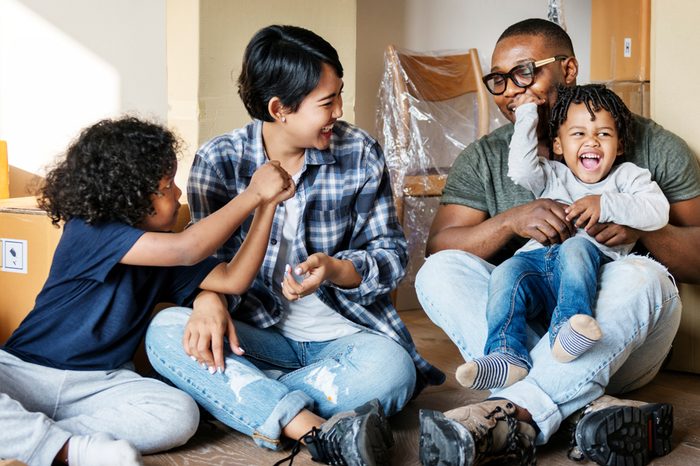
Myth: Adoptive parents aren’t the child’s “real” parents
Truth: Biology doesn’t make a family. What bonds children to their parents isn’t their DNA, but rather the love they are given. “Many adoptive parents question this before having a child is placed with them—it is a natural fear to have,” says Jennifer Van Gundy, LMSW, director of social services for the agency American Adoptions, who was adopted herself. “The reality is a ‘real mom’ or a ‘real dad’ is created by nurturing a bond, loving a child, and providing for them everything you can. Just like biological parents, adoptive parents feel love for their child in the middle of the night, after a soccer goal is scored, or there is an A on a project.” Research shows adoptive parents are incredibly nurturing and attentive, possibly because many wished for so long to have a child. When referring to the child’s biological parents, the term “birth parents” should be used instead of “natural” or “real parents.” Find out more things parents of adopted children wish you knew.

Myth: Children who are adopted won’t “fit in” to the family
Truth: Parents and children, adopted or not, will always have some struggle. Parenting is hard, and even parents raising biological children wonder where their kids “came from” sometimes. “Both biological and adoptive parents can struggle at times in their relationship with their children,” says Bobbi J. Miller, Ph.D, LMFT, a family therapist who specializes in adoption. “Based on personality factors and their own individual backgrounds, many parents find it easier to connect with some children than others.” But that isn’t due to any inherent “blood is thicker than water” idea. “Someone actually had the audacity to say to me when they found out we were licensed for foster to adopt, ‘It’s not fair to have bio children and adopt—you’ll never love the kids you adopted like you will a bio child,” adoptive mom Lindsey says. Of course, this wasn’t true, she says. You might not know that these famous celebrities were adopted.

Myth: Birth mothers “give up” their children because they don’t want them
Truth: Birth mothers deeply love their children and want what’s best for them. For birth mothers, the choice to place their child for adoption is often the hardest they will ever make, says Van Gundy. It’s not that they don’t want their children; it’s that they want more for them than they are able to give. “Birth mothers place their children in adoptive homes out of love while also bearing extreme loss,” says Tasha Blaine, LMSW, manager of special needs adoption at the agency Spence-Chapin. “Birth mothers think about their children, see their children, grieve the loss of their children, are proud of their children and, of course, want their children to feel loved, follow their dreams, and live to their fullest potential.” Instead of saying “give up,” phrase it as “make an adoption plan”—a little wordier, but more correct. “I did not give up my child—I terminated my parental rights so someone else could be her parent,” says birth mother Rebekkah. “While I could have been her parent, they were in a better situation and could give her more opportunities than I could then.” Here are more things every parent of young children desperately wants you to know.
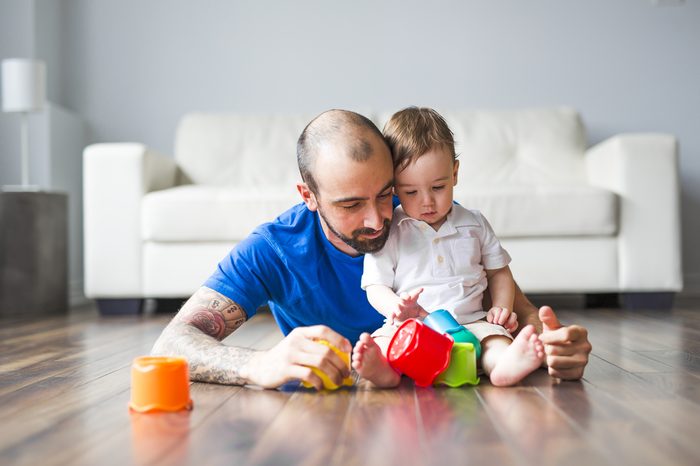
Myth: Adoptive parents should be concerned the birth parents will want the child back
Reality: Birth mothers understand the permanency of adoption. “Adoption is not a Lifetime movie!” says adoptive mom Kristin. The myth that the birth mother will try to take the child back persists today in popular films, TV shows, and books. Adoptive mom Denise even heard it from a medical professional. “My doctor recommended that we change our names and move away so she couldn’t be found,” she says. Van Gundy says this couldn’t be further from the right course of action. “It is best practice for parents considering placing a child for adoption to receive counseling and speak with their own attorney to ensure they understand the decision they are making,” she says. “Birth parents will go through a grieving process and may outwardly struggle with their emotions, but that raw emotion doesn’t mean they want the baby back.” Open communication between birth and adoptive families helps reassure birth mothers their child is happy and loved. This woman was adopted–these are some things she wants people to understand.

Myth: Birth mothers are unmarried teens or addicts
Truth: Birth mothers come from all walks of life. Although some birth mothers are teens or have problems with drugs or alcohol, many others are not. “In reality, birth mothers are as economically, educationally, and ethnically diverse as the country we live in,” Blaine says. “They range in age from tweens to women in their forties. They are high school dropouts and college educated. They are married, and they are single.” In addition, some birth mothers are already parenting other children. “These women know the reality of what parenting a child entails and they want what is best for their infant and any children they may already have,” Van Gundy says. Find out more secrets of the happiest families.
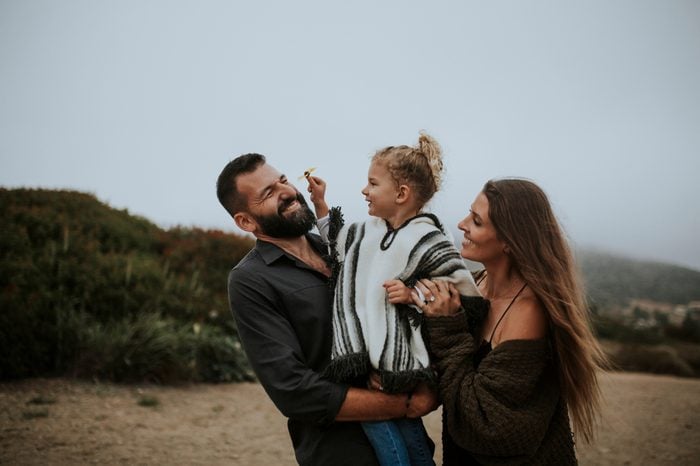
Myth: Open adoption is confusing for the child
Truth: Open adoption helps children feel secure in their identity. An open adoption is one in which children and birth families are in contact, either through meetings or letters and pictures. “Openness gives birth and adoptive families an opportunity to develop a relationship that can benefit them and the adopted person,” says Antoinette Cockerham, LCSW, executive vice president of External Affairs and Family Services at Spence-Chapin. “It gives children access to their genetic heritage and can help the child develop a stronger sense of self. It is a truthful way of forming family bonds.” A child can never be loved by too many people—but open adoption does not mean co-parenting. “A child knows who his or her parent is, and that is the person who is there for him every day when he wakes up in the morning, and to comfort him if he gets hurt,” says Monica Baker, MSW, associate director of domestic and special needs adoption at Spence-Chapin. Dr. Miller agrees. “Children have the ability to navigate incredible complexities in relationships, as long as they know they are loved,” she says. “The world is increasingly full of diverse family arrangements, and children are generally more open to this diversity than the adults in their lives.”

Myth: Adoptive parents should fear their children will want to look for their birth parents
Truth: Open adoption also alleviates children’s questions as to where they came from, rendering birth parent searches obsolete. “I was placed for adoption in a period when closed adoption was the only option, which lead to a lot of unanswered questions for me,” Van Gundy says. “Often closed adoptions create the most confusion and leave room for uncertainty and worry.” In addition, “In the past, not only were adoptions closed but adoptive parents were encouraged not to tell their children they were adopted—this creates a relationship based on a lie,” Dr. Miller says. “Grown adoptees have shared how painful the lie was and the resulting loss of trust they had in their parents.” Even if a birth mother today chooses a closed adoption, adoptive parents should welcome children’s questions. “Children can deal with a lot of information as long as they have a trusting and attuned relationship with their parents, and have the space to express their feelings about what they learn,” Dr. Miller says.
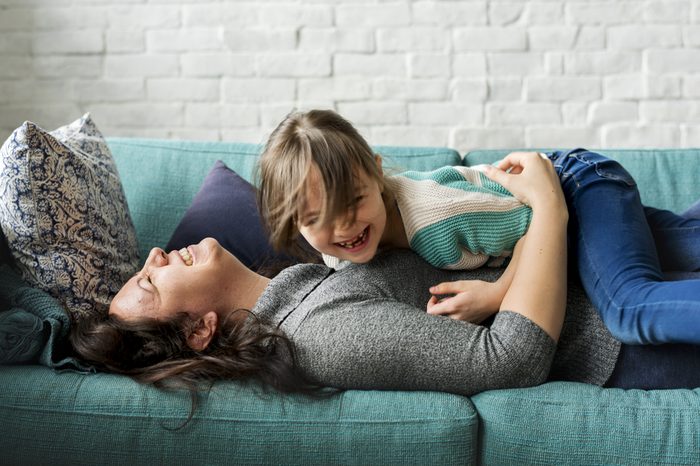
Myth: Adoption is a “second best” way to make a family
Truth: Adoptive families couldn’t imagine it any other way. Although many parents come to adoption through the heartbreak of infertility, after a grieving process adoption then becomes their “first choice” in family building. “Many women desire to become pregnant, and most people do not seek out adoption as their first option when they start building a family,” Van Gundy says. But, “often adoptive couples will look back on their challenges to have a biological child and be thankful they were led to adoption. It is impossible for them to imagine not being parents to their children whom they adopted.” Of course, not all adoptions occur because parents are unable to have biological children, either.
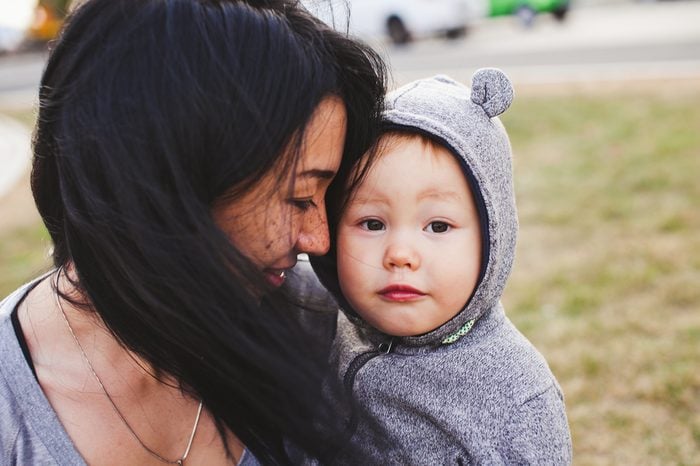
Myth: Birth mothers can “scam” potential adoptive parents
Truth: When going through an agency, expenses are well-regulated. Most birth mothers aren’t trying to deceive adoptive parents out of money. But when looking to adopt, it’s best practice to not go it alone and instead use a licensed adoption agency. “This is a question that comes up much more frequently as it relates to independent or attorney adoption. In Spence-Chapin’s domestic infant adoption programs, you will not incur fees to support individual birth parents,” says Cockerham. “The expenses that prospective parents can pay in connection with an adoption are regulated by state law and vary from state to state. Federal law provides protections against financial inducement in international adoptions.” Asking the agency you work with how it handles birth mother expenses will help avoid financial loss if a birth mother changes her mind about placing her child for adoption.
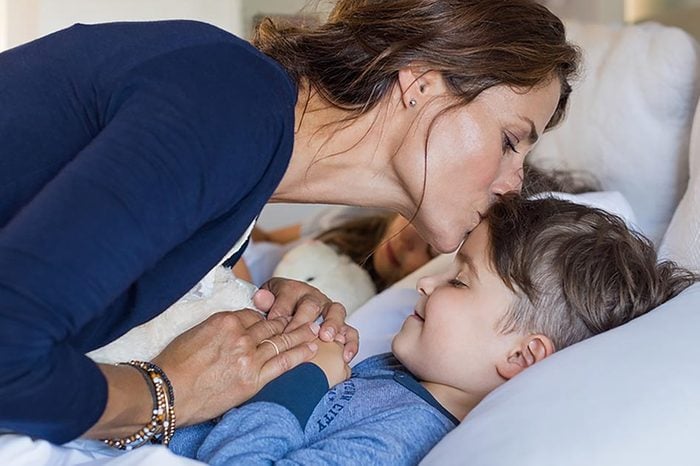
Myth: Adoption is expensive
Truth: It depends. Yes, some domestic infant adoption and international adoptions are expensive. “In most states, adoptive parents can pay a birth family’s reasonable medical, legal, and counseling expenses,” says Cockerham. Your adoption fees likely also go toward the counseling of the many expectant mothers who end up not choosing to place their baby for adoption; as well as other agency expenses. But, it’s also possible to adopt through foster care, where expenses are minimal. “If you go through the foster care system many times it is free,” says adoptive mom Crystal. “Also, [another myth] is that you can’t ever adopt a baby through foster care. If you foster to adopt, sometimes you may get an infant from the hospital and may be able to adopt that child later.”
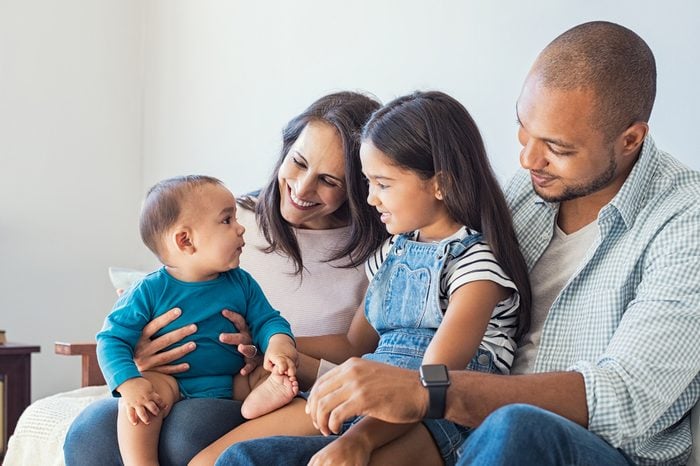
Myth: Transracial adoption isn’t a good way to create a family
Truth: Happy families can look all different ways. Adopting a child of another race does have special considerations—but that doesn’t mean it shouldn’t be done. “Who has the right to deny a child the love, nurturance, and permanency of a loving family through adoption?” says Mark Lacava, LCSW-R, executive vice president of the Modern Family Center at Spence-Chapin. “There is no hard research that has supported this concept.” However, adoptive parents need to make sure their child’s race is celebrated and modeled in their life. “This means you need to make space for people in your life that look like your child—friends, professionals that should be seen in your house and community,” Lacava says. “Your child’s schools should have a large percentage of children that look like them.” In addition, you need to merge with your child’s identity just as they are merging with yours. “Love is not enough—you need to walk the walk, and join communities as your child joined your family,” Lacava says. Dr. Miller says that white families looking to adopt a child of another race need to be willing to identify and address their own biases and privileges. As children grow, parents should have realistic conversations with them about race in America today. The stories of these six foster kids finding their forever home will melt your heart.

Myth: Children who are adopted should be told they’re adopted when they’re old enough to understand
Truth: Children who are adopted should never remember being told. If a child grows up always knowing they were adopted, it’s simply part of their identity and saves them the “who am I?” moment of a sit-down reveal when they’re older. “If a child is told later in life that they are adopted, it can lead the child to believe there is reason to hide the information, that being adopted is shameful, a secret, or that it should not be openly discussed,” Van Gundy says. Even infants and toddlers can be told their adoption story in a simple way. “I was raised always knowing I was adopted,” Van Gundy says. “The conversations started small and I would simply say, ‘I am special, I am adopted.’ As I grew older I was able to ask more questions and my parents were able to answer on an age-appropriate level. This helped me embrace adoption as part of my story.” Families can open dialogue by reading children stories about adoption and creating a safe environment for them to ask questions.

Myth: Children who are adopted are damaged emotionally
Truth: They’re just dealing with situations other children aren’t. There’s nothing inherently “wrong” with children who are placed for adoption, although they may be made to feel that way by others who view adoption negatively. “Children who are adopted are faced with some additional life situations and circumstances they will need to deal with,” Dr. Miller says. But, “in fictional media representations, the trope of the adoptee is often quite stereotypical and does not include the wide range of diverse experiences encompassed in adoption.” She notes the TV show This Is Us as a more nuanced, less stereotypical presentation of the complexities of being adopted.
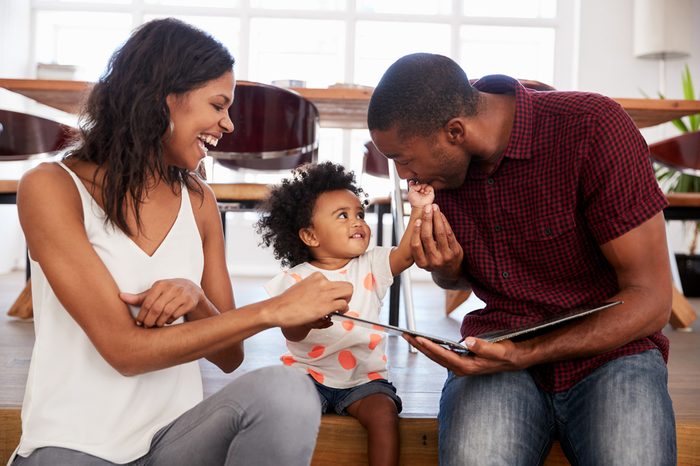
Myth: If you adopt you’ll get pregnant
Truth: That’s statistically unlikely. People remember the stories they’ve heard of this happening—but they don’t remember the many more occasions in which it didn’t. Adoption makes it no more likely that an infertile couple will get pregnant than if they didn’t adopt. “This was said to me by many people, including an OB/GYN,” adoptive mom Mitzki says. Adoptive mom Kristin had a similar experience. “I had a nurse say that to me in front of my daughter’s birth mother before she was born!” she says. Plus, this is extremely hurtful to say to hopeful adoptive parents. “This reinforces the narrative that biological children and the experience of being pregnant is superior to having a child who came into your family through adoption,” Dr. Miller says. “This message is harmful to all involved.”
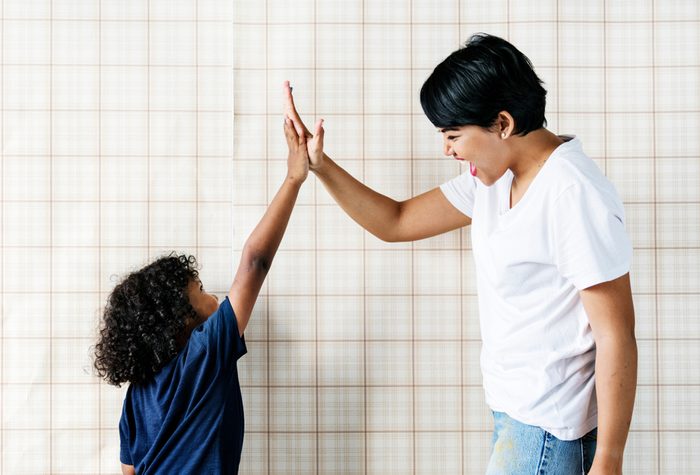
Myth: Only perfect parents can or should adopt
Truth: There’s no such thing as a perfect parent. Adoption and foster care agencies aren’t looking for a picture-perfect family. “We are by no means perfect, but we are capable of raising a child in a loving home,” says adoptive mom Krystina. “The perfect parent doesn’t exist, and it’s definitely not a requirement to adopt.” It’s best to be upfront with an adoption agency about any concerns you have—but adoption professionals know we’re all human. “Adoptive parents want to love a child and spend much of their time dreaming of a child,” Van Gundy says. “When a child joins their family it is fulfilling a dream for them.”
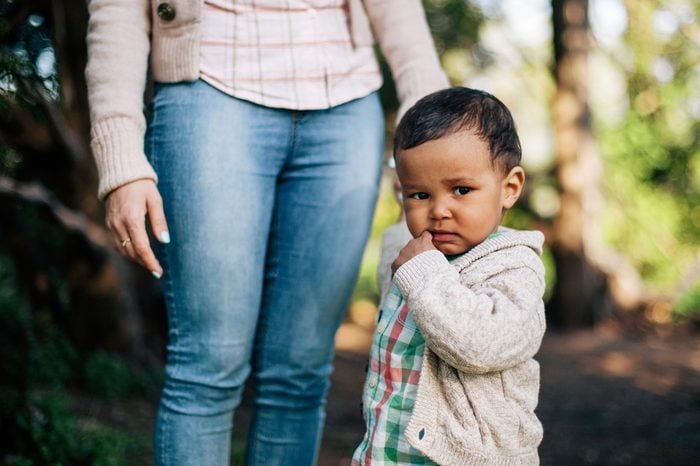
Myth: Adoption is a one-time event
Truth: Adoption is a lifelong process. Because adoption is part of a child’s (and family’s) identity, it stays with them throughout their life. “The children and adults involved in adoption continue to experience life through the prism of the way the family came together,” Dr. Miller says. As they grow, children may have new feelings and concerns about their adoption, which parents should be open to talking about. “Every adopted child has a different story and will process their story differently, and adoptive parents have no idea what this will look like,” says adoptive mom Angelique. Adoptive mom Jill describes adoption as a “legacy” that stays with the child and family. “The layers and depth to adoption are magnified as time passes,” she says. “Understanding that adoption is not an event, but a legacy is so important.”
